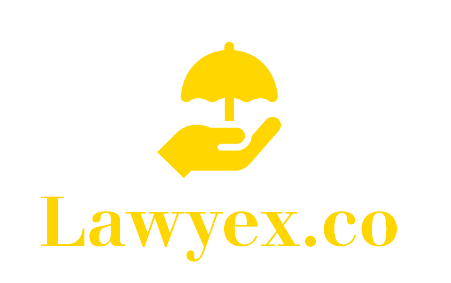If you own a business, you know how risky it can be. You need to keep up with the latest technology and make sure your employees are well trained in their roles. But that’s only part of the equation. What about all those things that could go wrong? Your business could be damaged by an accident or disaster, or sued by someone who says they were injured on your property—and these are just a few examples! If you don’t have insurance, it can cost thousands (or even millions) of dollars to cover any damages and losses from such incidents.
Fortunately, there are many different types of insurance policies available today that can help protect businesses against risks like these. In this article we’ll look at what types of coverage exist for small-business owners in particular; why they’re important; how they work; and where you can find them if you’re interested in getting started today!
Insurance can help protect your business.
Insurance is a financial product that helps protect you against the unexpected. It can help protect your business, personal assets and family.
Insurance can also be used to help protect your employees by offering them coverage for medical expenses and income replacement if they are injured on the job.
Risks businesses face
As a business owner, you are at risk of many things. You’re at risk of theft and fire, which can be devastating to your company. You’re also at risk of cyber attacks and data breaches that may cause significant harm to your business. And if someone sues you for something related to their employment with you–say an employee gets injured on the job–that can be costly too.
In addition to these major risks, there are many smaller ones: fraud (your customers paying with stolen credit cards or providing false information), cyber security (hackers gaining access into computers) and data privacy practices (keeping customer data safe).
The importance of having the right insurance.
Insurance is a tool to help you manage risk. It’s not just something that protects your business and its assets. Insurance is an investment in your business, and it helps you sleep at night by transferring some of the risk associated with running a business onto someone else’s shoulders.
The right insurance can protect your employees, customers and physical assets from damage or loss caused by various risks–such as fire or theft–so that everyone involved can focus on doing what they do best: making money!
How insurance policies are structured and how premiums are determined
As you might imagine, the cost of an insurance policy is determined by how much risk it covers. The more likely it is that something bad will happen and the more expensive it will be to deal with if it does, the higher your premiums will be.
If you want to lower your premiums:
- Don’t buy insurance for low-risk events (like a car accident) or for very unlikely ones (like a meteor hitting your house).
- Be sure not to file claims unless they’re warranted–and even then, only file one per year!
The role of deductibles and coverage limits
Deductibles and coverage limits are two other factors that can help you manage risk. A deductible is the amount of money you have to pay before your insurance kicks in, so if something happens and you need to file a claim, you’ll be responsible for paying this amount out-of-pocket before any compensation is given. You can choose to set a higher or lower deductible depending on your personal situation and preferences.
The coverage limit refers to how much money your policy will reimburse you following an incident–for example: if someone breaks into your store and steals $10,000 worth of merchandise from your shelves, then this is the maximum amount which will be paid out by their insurance company (and not including any applicable deductibles).
What types of business insurance policies are there?
There are a number of different types of business insurance policies, each with its own unique coverage. These include:
- Property damage – This type of policy covers the physical property of your business and its contents against damage or destruction by fire, flood and other natural disasters.
- Liability – Liability insurance protects you from lawsuits filed by people who have been injured on your premises or as a result of something related to your business activities (such as an employee’s actions). It also covers any legal fees associated with such claims against you.
- Business interruption – Business interruption coverage helps pay expenses if there’s an interruption in operations caused by fire or other covered causes, such as storms or earthquakes that result in power outages at your location(s). It may also be referred to as “loss-of-income” coverage because it replaces lost income during these times when employees cannot work due to lack of electricity/communication services needed for normal operations; however this is not always included on all policies so make sure yours includes it before purchasing one! (Also known as “Business Interruption Insurance”).
Insurance coverage for property damage
Property damage insurance covers loss of or damage to property, including the cost of repairs or replacement. It also covers loss of use and business interruption, as well as theft of your property. The policy can even cover the cost of legal fees if you are sued over an accident involving one of your employees that occurs on company property.
Insurance coverage for liability
Liability insurance is a form of coverage that can be used to help protect your business from claims of negligence. It can also be used to help protect you from claims of financial loss due to the actions of your employees and customers.
If a customer or employee sues you for an injury or other damages caused by their negligence, liability insurance will pay for legal fees and any other costs associated with defending yourself against their claim. The amount paid out by this type of policy depends on several factors including:
- Whether or not the person who was harmed was someone who had been involved in another accident before filing suit against you;
- How much money they’re seeking as compensation;
- Whether they have hired an attorney already (and how much experience he/she has).
Property and asset protection.
Property and asset protection insurance is designed to protect your business against losses due to damage or destruction of property. It may also cover theft or loss of inventory or other assets. Property and asset protection insurance can be part of a comprehensive policy, or sold separately.
If you own a small business, it’s important that you understand the types of risks that could affect your company in order to make sure they’re properly covered by insurance policies.
Product liability insurance.
Product liability insurance covers the legal costs of defending a product liability claim. It protects your business from the costs of defending claims, paying damages and legal fees. Product liability insurance can help you avoid product recalls and protect against costly lawsuits resulting from faulty or unsafe products that injure people or damage property.
Product Liability Insurance is recommended for companies in all industries that manufacture or sell consumer goods, including:
- Agriculture equipment manufacturers
- Automobile parts manufacturers
- Electronics companies
- Food processors
Insurance coverage for business interruption
Business interruption insurance (BI) is a type of business insurance that covers the financial losses you suffer when your business is unable to operate due to damage or destruction of property and/or equipment, or if you are unable to conduct your normal operations as a result of an interruption in the supply of electricity, natural gas or water.
BI policies typically provide coverage for:
- Direct physical loss of assets – such as machinery and tools used in manufacturing; furniture and fixtures; inventory (products not yet sold); and raw materials purchased specifically for a particular project
- Losses resulting from interruption in service provided by utilities (electricity, natural gas or water) that may result in damaged goods being unusable after repairs have been made
Insurance coverage for cyber threats
Cyber threats are a very real risk for businesses. There are many different types of cyber threats, and the most common ways that they can affect your business include:
- A virus or malware infecting your computer system
- Someone hacking into your website and stealing data or money from customers’ accounts
- Employees accidentally deleting files or sending sensitive information to the wrong people
How do you protect yourself against these risks? One option is to purchase insurance coverage for cyber threats. This type of insurance typically covers damages caused by hackers, viruses and other malicious software, as well as damage caused by employees who make careless errors with computers or other digital devices (such as laptops). The cost varies depending on the size of company being insured; small businesses may pay only a few hundred dollars per year while large corporations can spend thousands annually just on this type alone!
Importance of conducting a risk assessment
One of the most important steps in mitigating risks is conducting a risk assessment. A risk assessment is a process of identifying and evaluating all the risks you can think of, even if they seem unlikely. You should identify every potential threat to your business, from natural disasters to cyber attacks. This can be done by brainstorming with employees, customers and suppliers; using industry publications; reading news articles; talking with insurance providers; visiting government websites (such as FEMA); and asking other companies in your industry about their experiences with similar events.
Once you’ve identified all possible threats, evaluate each one based on its likelihood of happening (how likely is it?), its impact if it does occur (what would happen?), and its cost if it does occur ($$$). Then take action: either eliminate or mitigate those risks by making changes such as purchasing insurance coverage or installing new technology at work sites so they’re less susceptible to damage from floods or earthquakes respectively.”
Determining the appropriate types and amounts of insurance coverage for a business
When determining the appropriate types and amounts of insurance coverage for your business, it’s important to understand:
- The risks facing your business. For example, if you own an auto repair shop that specializes in high-end cars, you may want to purchase commercial automobile liability insurance (also called CGL). This type of policy protects against claims resulting from bodily injury or property damage caused by one of your employees acting within the scope of his or her employment. You might also consider purchasing commercial property insurance for any tools or equipment used at the location where work is performed on behalf of customers.
- The types of insurance available through local agents or brokers who represent multiple companies; this increases competition among carriers and helps ensure competitive prices for quality coverage that meets all requirements under state law.
You’ll be glad you have business insurance, even if you never need it!
You might think that insurance is something you’ll be glad you have when something bad happens. But it’s also important to consider the value of insurance even if nothing goes wrong.
Business owners, especially those who are new to running a small business, may not immediately see the value in buying insurance for their company. However, having coverage offers several benefits:
- It’s a safeguard against unforeseen events that could damage your property or ruin your reputation–and these things can happen at any time! For example, if one of your employees gets into an accident while driving for work and causes property damage or injury to someone else, having workers’ compensation coverage can protect both him/herself as well as you from financial losses related to medical bills or lost wages due to being unable to work after being injured on the job (or even fired). In another instance where someone suffers injury while visiting one of our clients’ stores over Thanksgiving weekend last year; they had purchased general liability coverage through us which covered all costs associated with this unfortunate incident including legal fees related directly back into court proceedings.
Conclusion
Business insurance is one of the most important investments that you can make for your business. It can help protect you from unexpected losses and keep your company running smoothly. The best way to determine what type of coverage is right for your company is by conducting a risk assessment and getting advice from experts who understand the unique risks faced by small businesses like yours. If you do decide to purchase an insurance policy, make sure that it covers all potential risks so that there are no surprises when something goes wrong!



Average Rating